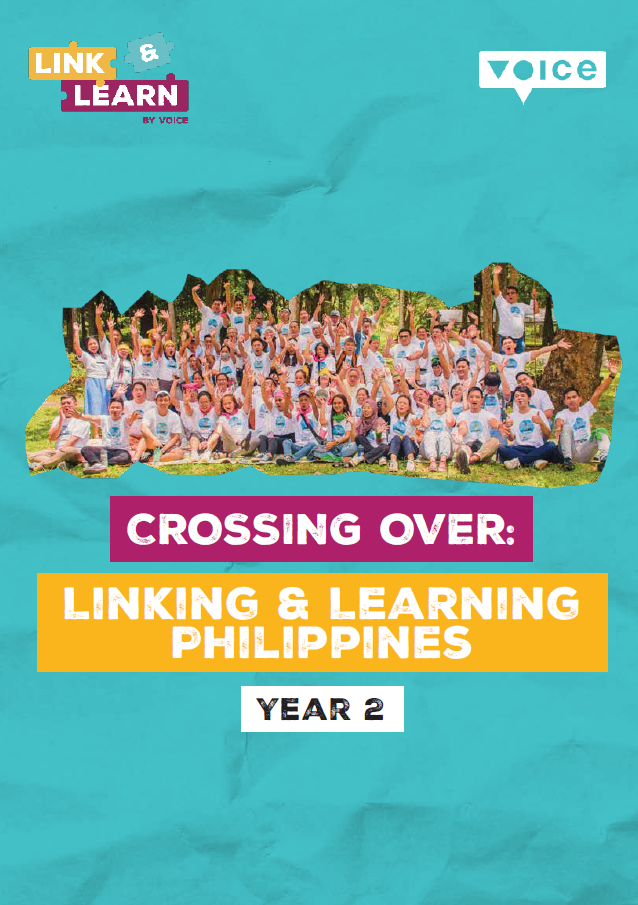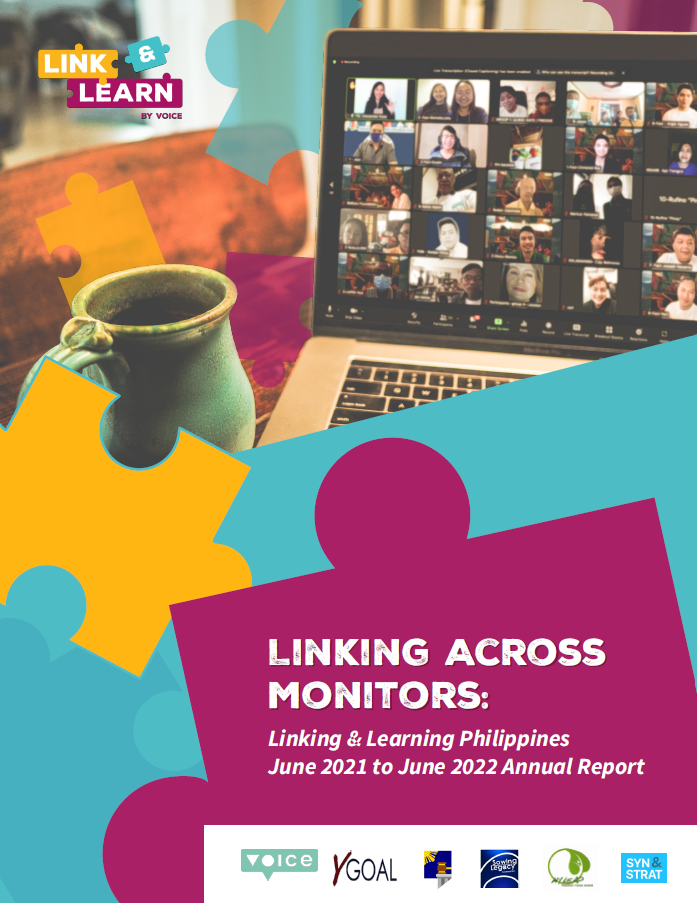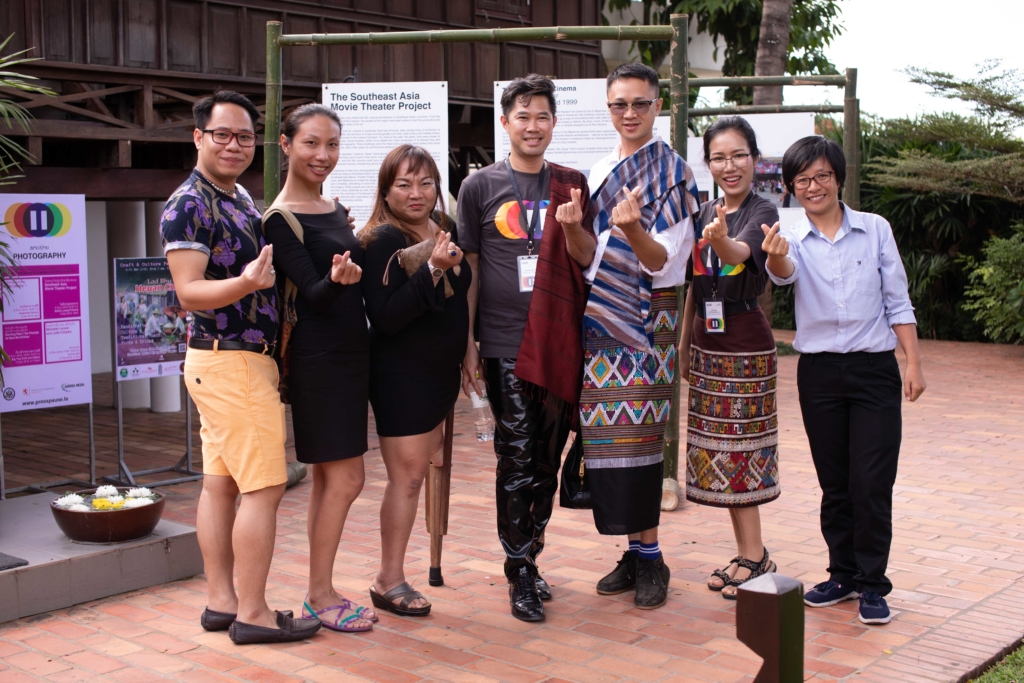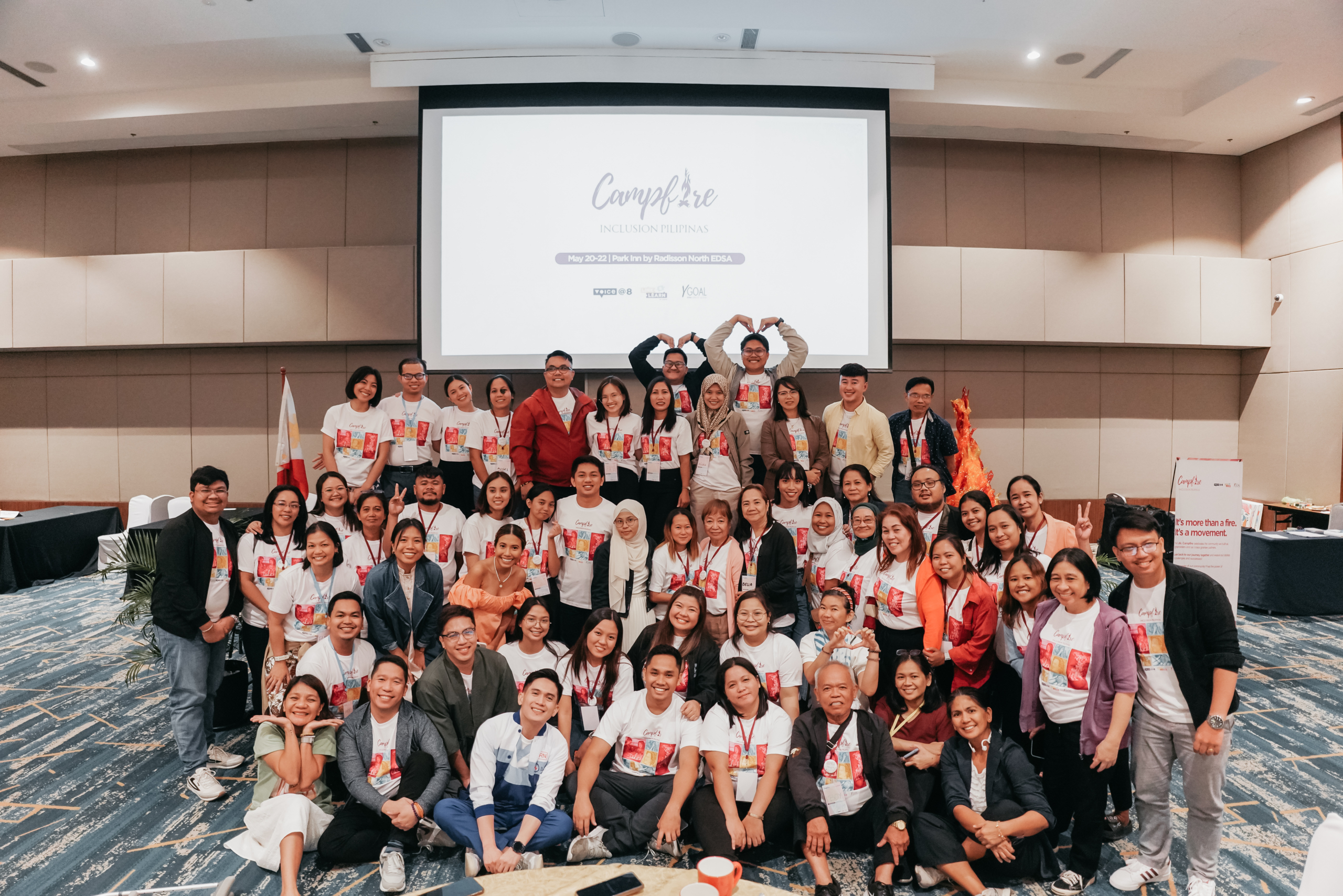Three Voices, One Dream
By Apple Mae Opit and Vhen John Fernandez, Child/Family Development Staff, Bidlisiw Foundation Inc.
Filipinos are continuing to be resilient in their fight against the ongoing War on Drugs in the country. The effects of this war cut across several rightsholder groups within Voice, such as children, youth and more senior citizens. However, it is rarely recognised how children and youth are also involved and significantly affected by this war. Bidlisiw Foundation, Inc., an Innovate and Learn grantee from the Philippines, highlights their journey as they continue exploring ways on how to provide age-appropriate support to child drug-users and surrenderees.
Through their Voice project, Bidlisiw is pilot-testing a community-based rehabilitation programme for children drug-users and surrenderees. Their model is based on sessions and integrates family development work. Now, in the second year of the project, Bidlisiw is reaping rewards through changes happening in the communities they are working with. Below are three voices which we hope will turn into waves of inspiration.
Analyn
Analyn started using shabu (methamphetamine) at the age of 13 due to peer pressure as well as seeing close family members using. Growing up in a community where drug trade was a common business also greatly contributed to her drug abuse. Analyn was only a month old when her mother entrusted her custody to her grandmother whose earnings were very minimal (two-three US dollars per day).
Analyn never had the chance to know her biological father either. At a very young age, Analyn felt the need to earn money so she could sustain her vices. She, later on, met someone whom she called ‘Tatay’ (father), who was in the business of illegal drug trade. Tatay recruited Analyn and assigned her to transport illegal drugs to neighbouring municipalities and cities in exchange for money and personal supply of illegal drugs. On top of this, ‘Tatay’ was also abusing her sexually.
In 2015, Analyn enrolled in the Bidlisiw’s programme after her case of being sexually exploited was revealed. At first, she showed no interest in the programme at all and failed to complete the Therapeutic Sessions for Children. She had no support from her mother who was then still involved with illegal drug use. In the middle of her programme, she left for another city where ‘Tatay’ resided, often travelling to and from her old and new residence while still trading illegal drugs.
A year after, the current administration’s campaign against illegal drugs commenced, more known by Filipinos as “Tokhang.” This made Analyn start fearing for her life. She encouraged her mother to surrender with her to the authorities. Her surrender paved way for her re-enrollment in Bidlisiw’s programme, under the Community- Based Recovery Programme for Children Drug Users/Surrenderees.
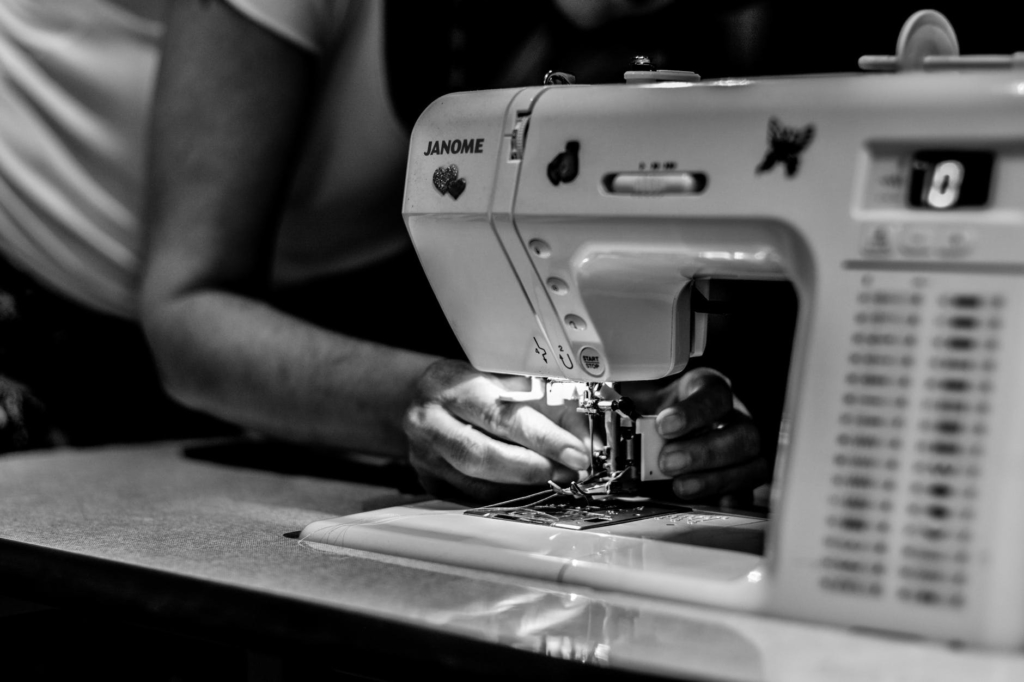
Unlike her previous enrollment to the programme where she showed no interest, Analyn now did the exact opposite. She actively participated in the weekly sessions, expressing interest to continue her education, and dreaming of having a regular and decent job. The programme has assisted her to enroll for a vocational course in Industrial Sewing Machine Operation which she completed last September 2018. She is now waiting for her job placement with the assistance of the Public Employment Service Office.
On the other hand, her family who was enrolled under Bidlisiw’s Family Development Work Programme was also provided with interventions. Through the programme, the family is continuing to increase their support for Analyn. Her mother is still attending the Recovery Programme provided by the barangay. Both Analyn and her mother have totally ceased to use of illegal drugs. Analyn is currently one of the selected “recovery buddies” to be trained in helping other Children Abusing Drugs (CAD). Her interest to change, family support, and resources provided by the programme facilitated her positive behavioural changes.
Analyn has been sober for two years now and is currently working as a cashier in a small store in the city.
Voice of Arman
Arman is the eldest among six children of an economically challenged family. Put together, his family’s resources were not able to sustain the upkeep of all of them. This situation also caused conflict in the family, leading to cases of gender-based violence towards his mother and the children. Being the eldest, Arman felt that he could not find solace with his siblings. Instead, he found comfort and happiness with his friends and neighbours, some of whom were in the same family situation.
Arman’s family situation became a great factor for his disinterest to continue schooling. He and his friends would regularly cut their classes. This continued for a couple of years before he decided to completely drop-out while in the 5th Grade. With more time to spare, Arman and his friends got curious about illegal drugs. His drug became his resort to run away from his family problems. His condition worsened as he started committing petty crimes such as theft a couple of times so as to support his drug use.
In 2014, Bidlisiw reached out to Arman. He was invited to join the programme activities but whenever the programme staff came to fetch him, he would not show up. Then came the “TokHang”, a campaign that the administration thought would address the country’s problem on the illegal drug trade. Same with Analyn, this sparked fear in Arman. This fear resulted in his contemplation to begin changing his life by surrendering in October 2016 which led to his enrolment to the Bidlisiw’s Community-Based Recovery Programme. Arman decided to stop using illegal drugs from then on, however, there were still a few times when he failed to control his cravings.
This time around, Arman became receptive to the programme. He has been joining the weekly sessions, and most of the time he comes earlier than the expected time. He has only been absent once from the sessions. His willingness to change positively affected his family and the neighbours’ perception of him. This feeling of acceptance encouraged Arman to continue his education to get a better job opportunity in the future. Through the help of the programme, Arman was enrolled in the Alternative Learning System of the village with a technical course in Air-conditioning and Refrigeration. Since his family receives meagre income and could not provide assistance for Arman, Bidlisiw provided for his transportation allowance.
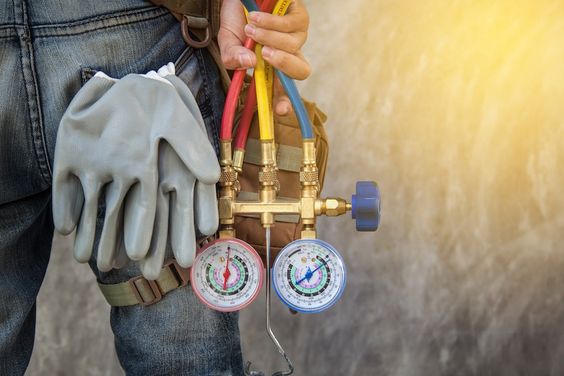
Arman has now completed his technical course and is currently working as an air-conditioning technician in a nearby city. His neighbors, friends, and family members are proud of him and have claimed that he is now a better person. Arman has been very grateful to be enrolled in the programme as it has helped him actualize his dream of a better life.
Jeremy
This was not Jeremy’s first encounter with Bidlisiw. In fact, he was enrolled in the organisation’s rehabilitation programme back in 2014 because he had been engaged in commercially and sexually exploitative activities.
Jeremy was born into a large family. His parent’s little income was not able to provide the basic needs of all the eight children.
Jeremy felt being a Commercially and Sexually Exploited Child (CSEC) was his only way of getting his needs and wants because he could not rely on either parent. He also resorted to petty theft, stealing clothes and other personal belongings from neighbours which he sold, especially when there were school projects or fees that he needed to pay for. He usually did these activities late at night and went home at dawn or early morning. He was often absent in school in flunked his classes, this led to his loss of interest in continuing his education and dropped-out eventually. With more time to spare, his activities with peers worsened. Jeremy was influenced by peers to try illegal drugs.
On one of the nights when he was hanging out with peers, Bidlisiw reached out to him. Jeremy was invited to join programme activities which he accepted. However, on the days of the activities, the staff had a hard-challenging time trying to create a relationship with him. Even with this attitude, Jeremy completed the programme last 2014, and he and his family were given intervention.
The year 2016 came and curbing of the illegal drug trade was strengthened by the “TokHang” campaign. Curfew operations for minors were strictly implemented. Jeremy was rescued by the police when they often spotted him going out with peers late at night. Though he claimed that he was not using illegal drugs anymore, he was forced by the police to surrender as a drug user. Jeremy confessed that he cannot leave his habit of going out late at night to be with peers, however, he claimed that he has been sober from illegal drugs because he feared the operation.
His surrender led him to his re-enrollment to the Bidlisiw’s Community-Based Recovery Programme. He claimed that he has been sober since early 2017, which was validated by his peers and neighbours. Upon enrolment to the programme, he was administered with a screening test called Alcohol Smoking and Substance Involvement Screening Test-Brief.
Intervention (ASSIST-BI). The results showed that he had a high score in smoking, a moderate score in alcohol, and a low score in amphetamine.

Since then Jeremy tried to change himself by getting rid of his vices. Jeremy is serious with his schooling now because he believes that education will be his key for a better life, not only for himself but also for his family. He is currently 18 years old but still decided to attend formal school. Jeremy is aware of his parents’ incapacity to provide for all of them, that is why he is currently juggling work and education. He works in the morning as a house helper and studies during the night. Every Thursday afternoon he makes time to attend the weekly sessions of Bidlisiw.
Aside from the weekly psycho-education session, Jeremy has been given educational assistance with the help of the Project. His motivation to do well in school bore great results. He was among the top five students in his class last school year. His achievements were brought about by his determination and resolve to change his life for the better.
Note: Names used in the stories are aliases to ensure their personal safety and security. Photos also do not show the faces of the people involved.

